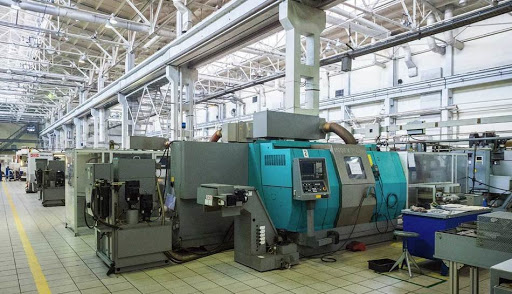DEPRECIATION IMPACT ON PLANT AND MACHINERY
Depreciation of plant and machinery refers to the gradual decrease in the value of these assets over time due to wear and tear, obsolescence, or other factors. This decrease in value is recorded as an expense on the company’s financial statements, reflecting the reduction in the asset’s worth. Depreciation is important for companies because it allows them to spread the cost of an asset over its useful life, rather than recognizing the full cost upfront.
The depreciation of plant and machinery is typically calculated using various methods, such as straight-line depreciation, accelerated depreciation, or units of production depreciation. The method used depends on the nature of the asset, its estimated useful life, and the company’s accounting policies.
Depreciation is an important accounting concept because it affects a company’s financial statements and taxes. It reduces the asset’s book value, which is the value recorded on the company’s balance sheet, and is also a tax-deductible expense in many countries. It is important for companies to carefully consider their depreciation policies to ensure they are reflecting the true value of their assets and complying with accounting and tax regulations.
Depreciation is the gradual decrease in the value of an asset over time due to wear and tear, obsolescence, or other factors. In the case of plant and machinery, depreciation can have several impacts:
- Reduction in the book value: Depreciation reduces the book value of the plant and machinery over time. This means that the asset is reflected at a lower value in the company’s financial statements, which can affect the company’s overall financial position.
- Impact on profitability: Depreciation is a non-cash expense, which means that it does not directly impact the company’s cash flow. However, it does affect the company’s profitability by reducing its net income. This can have an impact on the company’s ability to attract investors or secure financing.
- Impact on taxes: Depreciation is considered a tax-deductible expense in many countries. This means that companies can use depreciation to reduce their taxable income and lower their tax bill.
- Need for replacement: Depreciation also signals the need for replacement or upgrading of the plant and machinery. As the asset value decreases, it may become less efficient or effective, leading to increased maintenance costs or reduced productivity. This can eventually result in the need for replacement or upgrading, which can be a significant expense for the company.
Overall, depreciation can have a significant impact on the financial position and operations of a company, particularly when it comes to plant and machinery. It is important for companies to carefully consider their depreciation policies and the impact they may have on their financial statements, taxes, and future operations.


